Azerbaijan's economy has made great progress during the 20 years of Ilham Aliyev's presidency
The socio-economic development strategy established by the national leader Heydar Aliyev and confidently continued by the head of state Ilham Aliyev made it possible to solve the fateful issues in our country.
The socioeconomic development strategy established by the national leader Heydar Aliyev and confidently continued by the head of state Ilham Aliyev made it possible to solve the fateful issues in our country.
During the 20-year presidency of Mr. Aliyev, flexible reforms were carried out in all spheres, and state programs were adopted. Effective relations with international organizations were established as a result of the considered economic policy, and the important oil strategy was continued.
When Ilham Aliyev was elected the President of Azerbaijan for the first time, he declared the complete and unconditional restoration of the territorial integrity and sovereignty of our state within the borders recognized at the international level as the supreme goal of his political program. Today, this political program has already been realized. Achieving the historically significant Victory was also possible thanks to the implementation of the main economic development programs of our country.
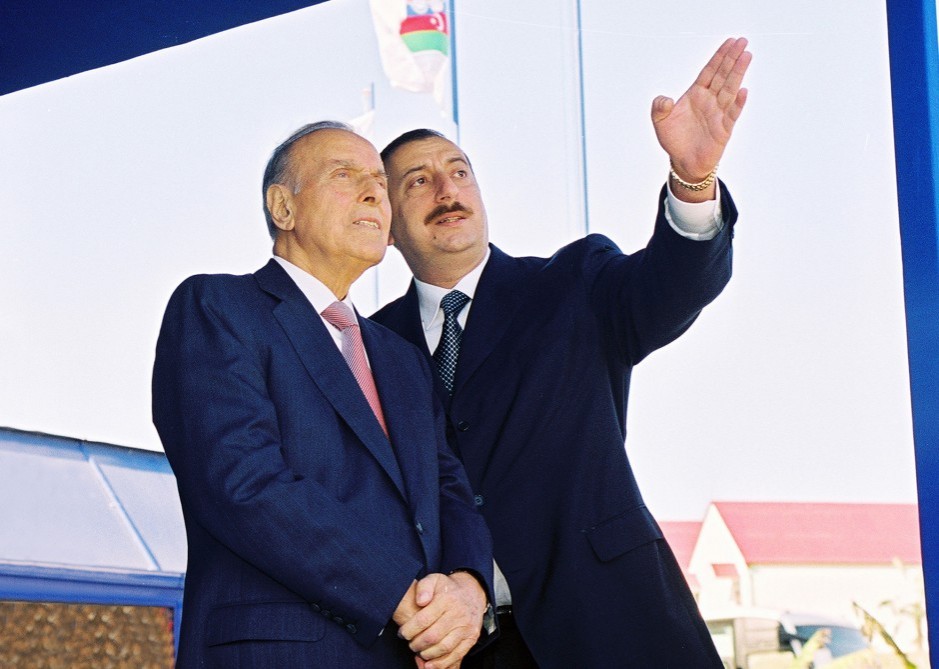
This development and progress formed the foundation of our Victory and created the necessary financial and material resources for it.
A national economic development model based on solid foundations
According to the Ministry of Economy, important factors such as new and flexible economic approaches, diversification of the economy, creation of a favorable business environment, further increase of investment attractiveness, radical changes in the tax and customs system, and increase of transparency have ensured sustainable and inclusive socio-economic development of Azerbaijan. Ensuring high immunity of the country's economy to pandemics and global crises and minimizing the negative effects of these crises is explained by the stability of the national economic development model based on solid foundations.
The ministry told APA-Economics that according to World Bank estimates, Azerbaijan entered the group of upper-middle-income countries in 2002-2022. Over the past 20 years, the gross domestic product (GDP) has increased from 6.2 billion US dollars to 78.7 billion US dollars, and the real volume of GDP has increased 4 times.

GDP per capita increased from 769 USD to 7,798 USD. Non-oil and gas GDP increased from 4.1 billion US dollars to 41.1 billion US dollars. The country's foreign trade turnover increased from 3.8 billion US dollars to 52.7 billion US dollars. The volume of exports increased from 2.2 billion US dollars to 38.1 billion US dollars. Non-oil exports increased from 0.26 billion US dollars to 3.05 billion US dollars. The foreign trade surplus increased from 0.5 billion US dollars to 23.6 billion US dollars. During 2003-2022, agriculture in Azerbaijan increased by 2.2 times, the transport sector by 4.9 times, tourism and public catering by 18.9 times, and the information and communication sector by 23 times.
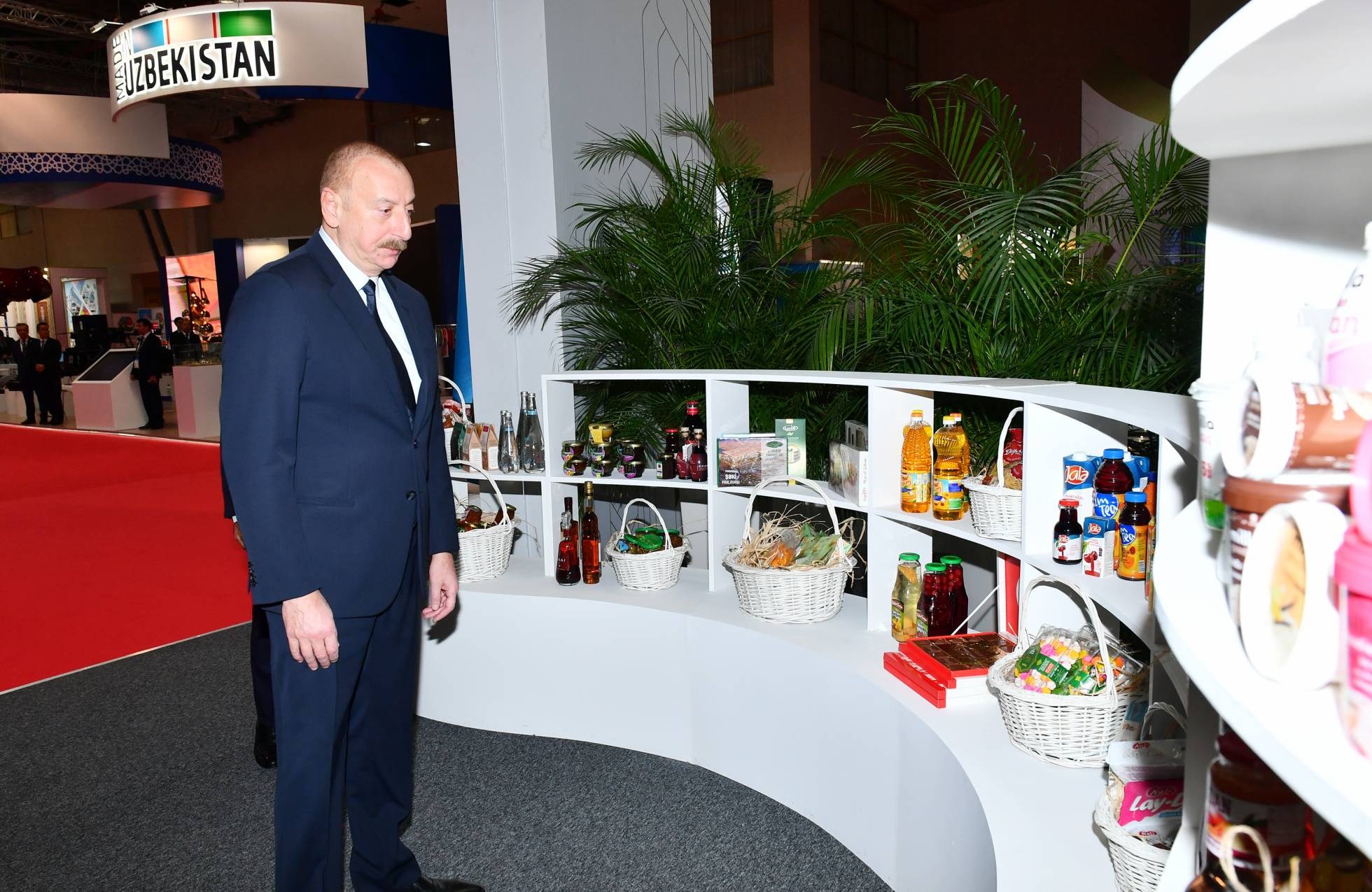
The country's strategic foreign exchange reserves increased from 1.4 billion US dollars to 58.5 billion US dollars. Compared to 2002, the poverty rate has decreased from 46.7% to 5.5% in 2022.
Based on the results and sound principles targeted in the National Priorities of Azerbaijan until 2030 and the socio-economic development strategy for 2022-2026, to further develop the non-oil economy in the future, to strengthen the country's position in the world economy as a result of the development of human capital, countries with higher incomes aiming to enter the group.
A successful policy in the field of transnational energy and transport-communication corridors has increased socio-economic development indicators. Our country has become a strategic and reliable partner in Europe's energy supply. The Baku-Tbilisi-Ceyhan pipeline, which was put into operation in 2006, and the Southern Gas Corridor, which was officially opened in 2018, should be specially mentioned in this regard. For the new phase of energy cooperation, a Memorandum and Agreement on strategic cooperation in the field of energy was signed with Europe and other partner countries in 2022. Those documents envisage the increase of gas transportation, the export of electricity from renewable sources and liquid hydrogen to Europe, as well as the construction of infrastructure for transmission. Due to the challenges of the global energy transition, our country organizes the efficient production of renewable energy sources in cooperation with foreign investors. Wind and solar energy production projects are being successfully implemented with the companies "Masdar" of the United Arab Emirates and "Acwa Power" of the Kingdom of Saudi Arabia. In addition, it is planned to build a 240-megawatt solar power plant together with BP. In cooperation with a number of other energy companies, it is planned to implement both onshore and offshore solar and wind energy production projects.
Located at the intersection of East-West and North-South transport corridors, Azerbaijan acts not only as a transit country but also as an initiator of several transport projects. The Baku-Tbilisi-Kars railway project implemented with the initiative and financial support of our country was commissioned in 2017. It is the shortest route not only between the 3 countries but also between Asia and Europe. Another important project initiated by Azerbaijan is the Baku International Sea Trade Port. Last year, the volume of total loading at the Baku International Sea Trade Port increased by 15% and amounted to 6.4 million tons. Up to 90% of it is accounted for by transit cargo. To increase the transit potential, fundamental works on the construction of the 2nd phase of the port have been started.
The Alat Free Economic Zone will organize the production of high-value-added, export-oriented products and services by attracting local and foreign investors, expanding Azerbaijan's transit opportunities, and increasing cargo transportation.
Transport infrastructure is being improved to take optimal advantage of the growing opportunities of the Middle Corridor. The corridor connecting Nakhchivan and the main part of Azerbaijan will also ensure the branching of the Middle Corridor route. The socio-economic development strategy for 2022-2026 envisages turning our country into a regional hub and e-commerce center and increasing the volume of transit freight and logistics operations.
Increasing investment attractiveness by applying innovative approaches
Continuous macroeconomic and financial stability in our country determines domestic and foreign investment activity. Creating a healthy and transparent business environment stimulates the flow of foreign direct investments that bring high technology and knowledge to the country. Azerbaijan has signed agreements on the promotion and mutual protection of investments with 30 countries within the framework of bilateral cooperation at the international level. The favorable business environment, concessions, privileges, and incentives created for investors with continuous reforms ensured the increase of investments in the country's economy, and the creation of new production areas and jobs. According to the results of surveys conducted by international organizations, further improvement of the business environment and improvement of investors' expectations are observed in our country. 154.1 billion US dollars were foreign investments, and the total volume of investments directed to the country's economy during 2003-2022 amounted to 310.4 billion US dollars.
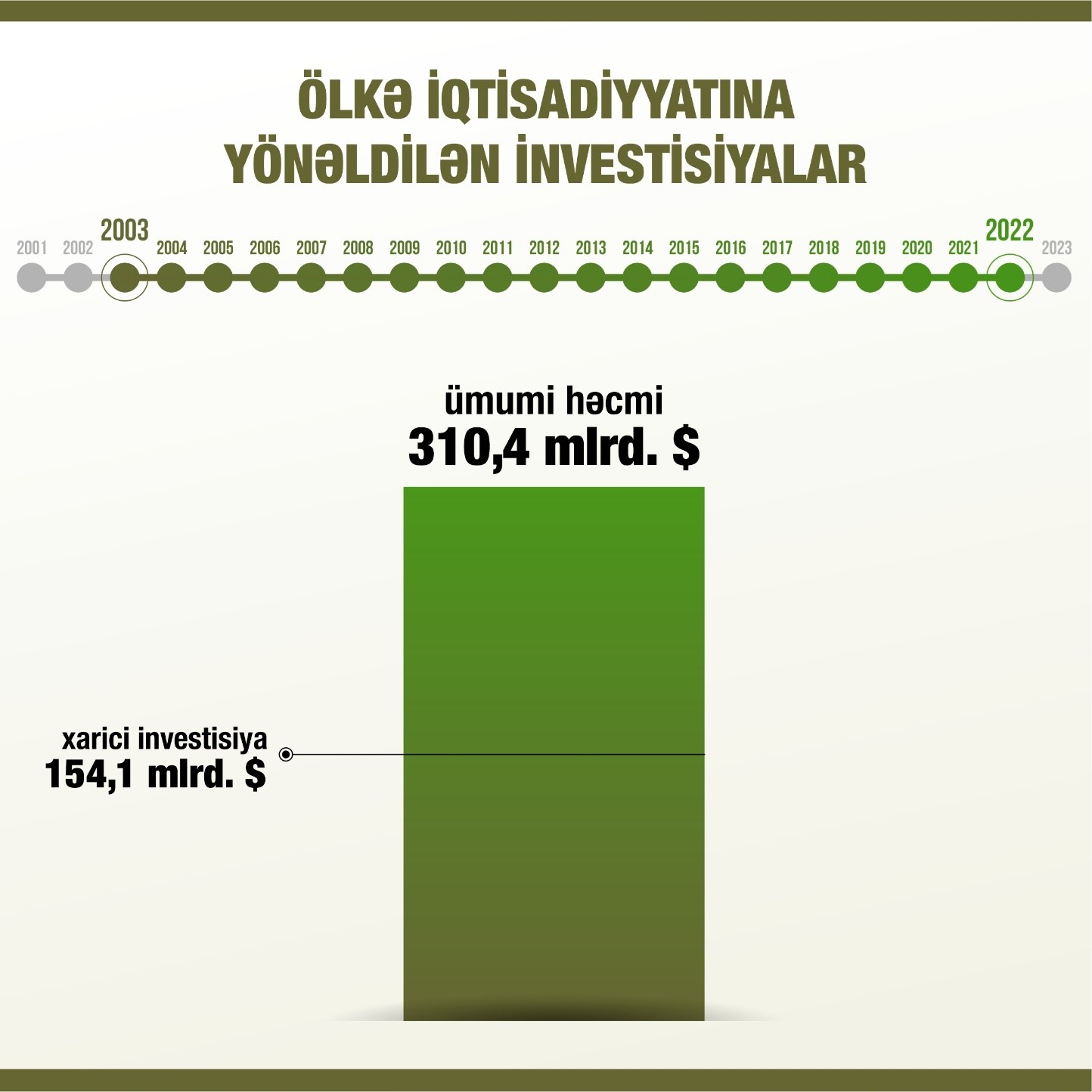
In 2002, the amount of investments directed to the economy was 2.8 billion US dollars, and by 2022 this figure was 17.1 billion US dollars. During 2003-2022, the volume of foreign direct investments (FDI) in the country's economy was 100.7 billion US dollars. Various measures are being taken to increase the attractiveness of the investment environment in the country. The "single window" principle is applied to foreign investors and they are supported in various directions. Also, a Strategy for the promotion of foreign direct investments is being prepared.
The number of trading partners has increased from 55 countries to 185
During this period, the number of the country's trading partners increased and reached 185 from 55 countries in 2022. Last year, non-oil products were exported from Azerbaijan to more than 110 countries. In addition to geographical diversification in the field of non-oil and gas export, successful results were also achieved in the diversification of product types. Support for the participation of the country's entrepreneurs in international exhibitions and trade fairs and promotion of the "Made in Azerbaijan" brand abroad, etc. measures also stimulate export growth.
Currently, there are 11 trading houses in foreign countries where Azerbaijani products and cuisine are presented. The activities of the trade representative offices, which aim to expand the country's economic and trade relations, and protect and represent its interests in this field, are expanding.
One of the mechanisms for stimulating the expansion of the geography of exports, which is in preparation, is the subsidization of logistics.
The prepared National Export Strategy aims to export existing products to new markets in the short and medium term and to export new products to new markets in the long term. Compared to 2021, Azerbaijan's non-oil exports are expected to increase by 85% in 2026, i.e. at the level of approximately 5 billion US dollars.
The role of the private sector has increased
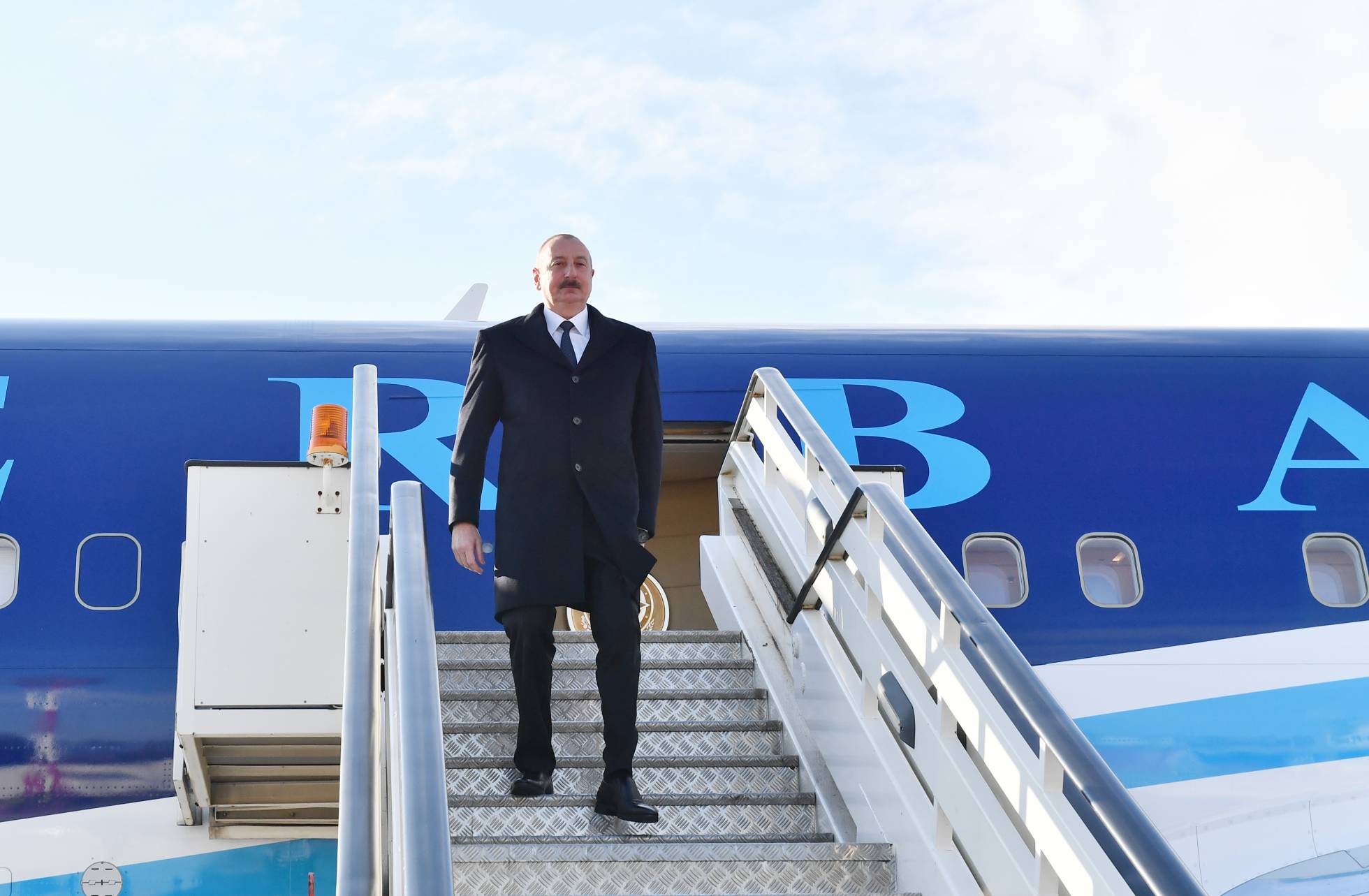
The private sector has a decisive role in increasing employment, non-oil exports, and other strategic issues. Improvement of the free competition environment, simplification of administrative procedures, tax concessions and subsidies, financial support to the real sector, and other measures are implemented in Azerbaijan. As a result of this, business activities in the country have become large-scale during the past period. Azerbaijani businessmen actively participate in projects implemented in foreign countries, invest in various fields, and are known as reliable partners. Currently, the number of people actively engaged in entrepreneurial activities in the country is more than 683 thousand. The share of the private sector in GDP is 83.5%, and its share in employment is close to 78%.
From 2003 to 2022, 2.83 billion manat concessional loans were granted by the Entrepreneurship Development Fund for the financing of 42,703 investment projects of business entities.
More than 178,000 new jobs have been opened due to financed projects.
Except for Baku and Absheron economic regions, 62.2% (1.76 billion manats) of allocated concessional loans belong to the regions. 50.7% of the loans were directed to the production of agricultural products, and 49.3% to the production and processing of various types of industrial products, including the processing of agricultural products and the development of other areas.

To facilitate the access of business subjects to concessional state loans, the number of required documents has been reduced to a minimum, the condition of notarization of documents has been abolished, and the requirement for a business plan for loans up to 200,000 manats has been removed. In 2018, the annual interest rate of concessional loans was reduced to 5%.
To prevent undue interference with entrepreneurial activity, the inspections were suspended from 2015 until January 1, 2024, except for several cases.
The support provided to entrepreneurs during the pandemic is an indication that the state is always with entrepreneurs. These measures made it possible to restore and increase the economic activity of entrepreneurs and accelerate economic development. It was the largest support package relative to GDP in the region. During the pandemic, the number of entrepreneurs who received financial support was more than 132,000, and the total amount of financial resources paid was 364 million. was close to Manat. A tax relief package worth more than 115 million manats was presented to entrepreneurs. At the same time, it is necessary to especially mention the loan guarantee and interest subsidization mechanisms for the existing loan portfolio worth 1.5 billion manat for entrepreneurs affected by the effects of the pandemic. Simplifying the work of entrepreneurs and increasing the support mechanism for them was also implemented in the field of leasing state property.
At present, 99.6% of business entities across the country are micro, small, and medium enterprises (SMEs).
In the development of innovative entrepreneurship, issues such as the application of elements of the knowledge economy, the 4th Industrial Revolution, integration into the global value chain, clustering, digital transformation of the industry, and the creation of "smart" business models are among the main goals.
Obtaining licenses and permits is one of the main conditions for entrepreneurial activity. To simplify this process, the Ministry of Economy continues to issue licenses to entrepreneurs through "ASAN service" centers and "SME houses", except for cases arising from state security. Also, licenses and permits are issued electronically through the "Licenses and Permits" portal.
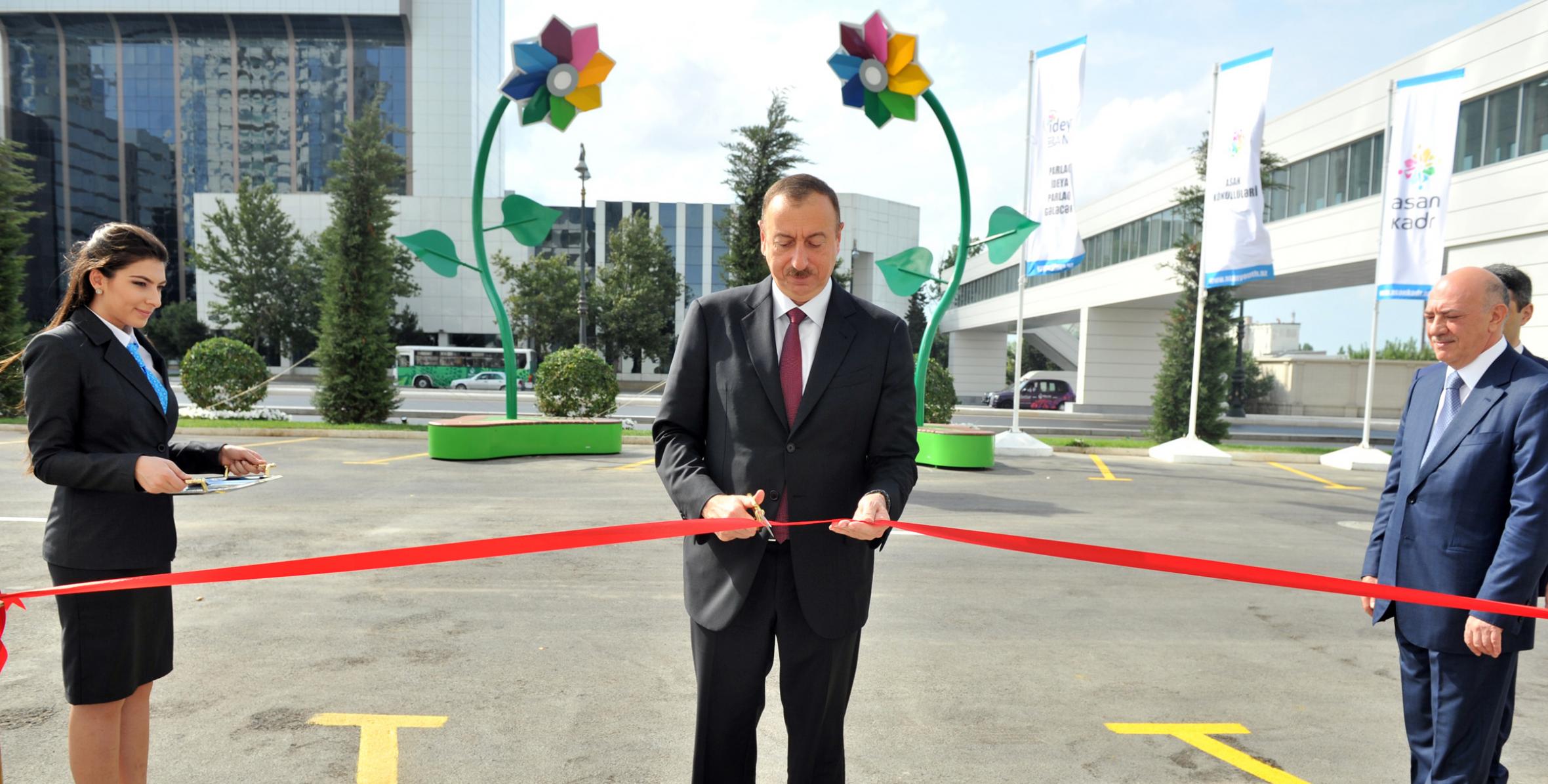
The results of continuous reforms to improve the business environment are noted in international reports. In the "Global Competitiveness Index" report of the World Economic Forum, our country moved up 11 places and took the 58th position among 141 countries. According to the report, Azerbaijan advanced on 8 out of 12 indicators and took a leading position among the CIS countries, and was also the first in the South Caucasus region. In this report, Azerbaijan moved up 8 places and ranked 23rd in the world ranking for "business dynamism", which once again confirms the intensive reforms carried out by our country in the direction of the development of the business environment.
Over the past 20 years, the volume of production in the industry has increased from 4.0 billion manats to 86.4 billion manats. While the share of the private sector in the total volume of industrial output was 54.9% in 2002, it will be 87.6% in 2022.
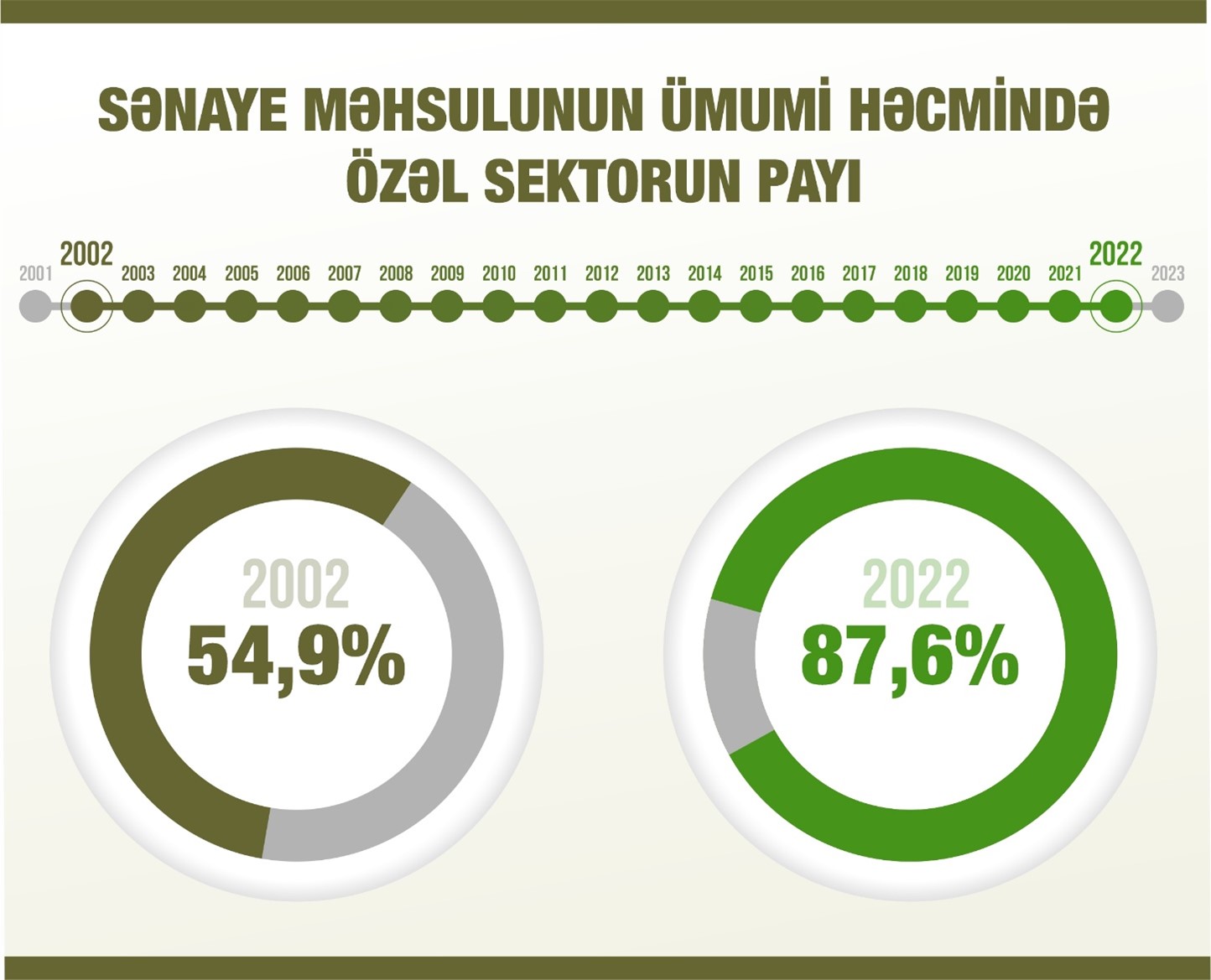
In 2002-2022, the volume of production in the country's non-oil and gas industry increased from 1.6 billion manats to 17.7 billion manats, which indicates a 4.3 times real growth.
One of the important mechanisms aimed at the development of industry is the creation of industrial zones - industrial parks and neighborhoods - at the initiative of the head of state. 7 industrial parks were created in the country: "Araz Valley Economic Zone" industrial parks in Sumgayit Chemical, Balakhani, Mingachevir, Garadagh, Pirallahi, Aghdam and Jabrayil districts, 5 industrial districts - Neftchala, Masalli, Hajigabul, Sabirabad, and Sharur industrial districts.
A total of 10.23 billion manat products were produced in the industrial zones, of which 3.35 billion manats were exported. In the first half of the current year, enterprises operating in industrial zones sold 1.4 billion manat products, of which 33.2%, i.e. 470.6 million manats, were exported.
In the first half of 2023, the share of industrial zones in the non-oil sector of the country's industry was 16.5 percent, and 20.7 percent (470.6 million manats) in the export of non-oil industrial products. Products produced in industrial zones are exported to more than 50 countries.
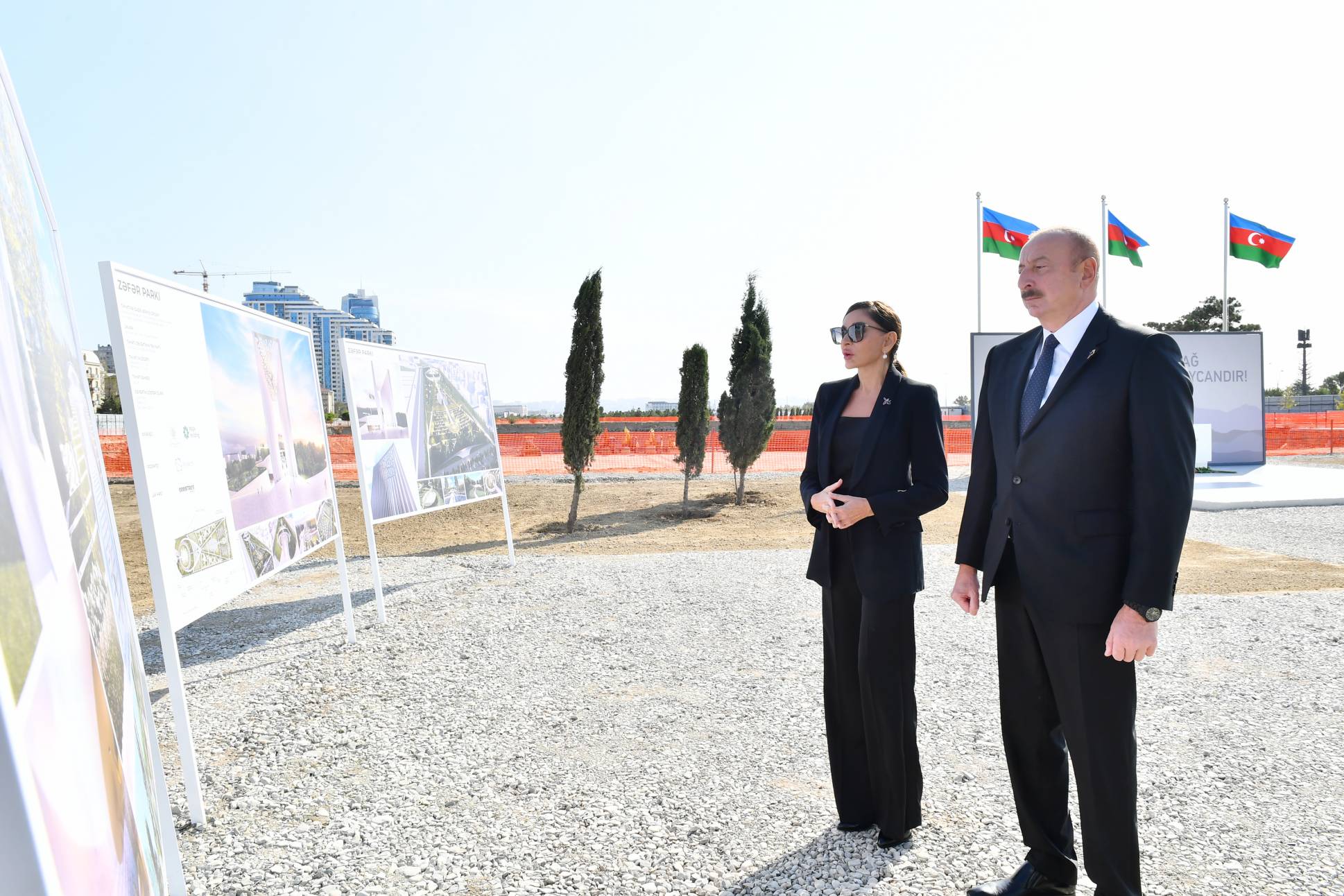
583 projects have been promoted for more than 7 years within the framework of the investment promotion mechanism, which stimulates the business activity of entrepreneurs, creates favorable conditions for them to obtain tax and customs benefits and has been applied since 2016. As a result of the implementation of the projects, more than 5.6 billion manats will be invested in the economy and more than 38.6 thousand jobs will be created. So far, machinery, technological equipment, and facilities worth more than 1.8 billion manats have been imported to the country on preferential terms, and modern production areas have been established. As a result of the implementation of the promoted projects, enterprises producing new products were established in the country.
With the President's Decree dated December 20, 2022, the investment promotion mechanism was improved taking into account the experience of previous years. The investment promotion document is issued for 3 years from January 1, 2023, to projects implemented in industrial districts, agricultural parks, tourism, and recreation zones, and relevant areas, as well as to strategic projects in the directions determined by the head of state. The area of recycling waste, which is important from the ecological point of view, has been added to the new criteria, and the areas of activity for tourism have been expanded. To specify the scope of imported machinery, technological equipment, and facilities for projects within the framework of the mechanism, the list of goods positions was approved. At the moment, work is being done on determining directions for strategic projects.
Agroparks are one of the effective mechanisms for increasing the production of food products and raising the level of self-sufficiency. According to the order of the head of state, the creation of agricultural parks is supported by the state through the construction of the necessary external infrastructure at the expense of state funds, concessional loans, and investment promotion documents. During the past period, works on the creation of 51 agricultural parks with a total project value of 2.4 billion manats were carried out in 239.3 thousand hectares of land in 32 districts of the republic. 46 of these agro parks have already started to operate, while design or construction works are underway in others. So far, more than 1.5 billion manats have been invested by entrepreneurs in the creation of agro parks. As a result of the application of innovative technologies, the average yield per hectare in the agricultural parks exceeded the national average by approximately 2 times.
In general, as a result of the support measures implemented by the state, the added value created in the non-oil and gas industry, which is the sectoral driving force of economic growth, increased 4.7 times in real terms during the period 2003-2022.
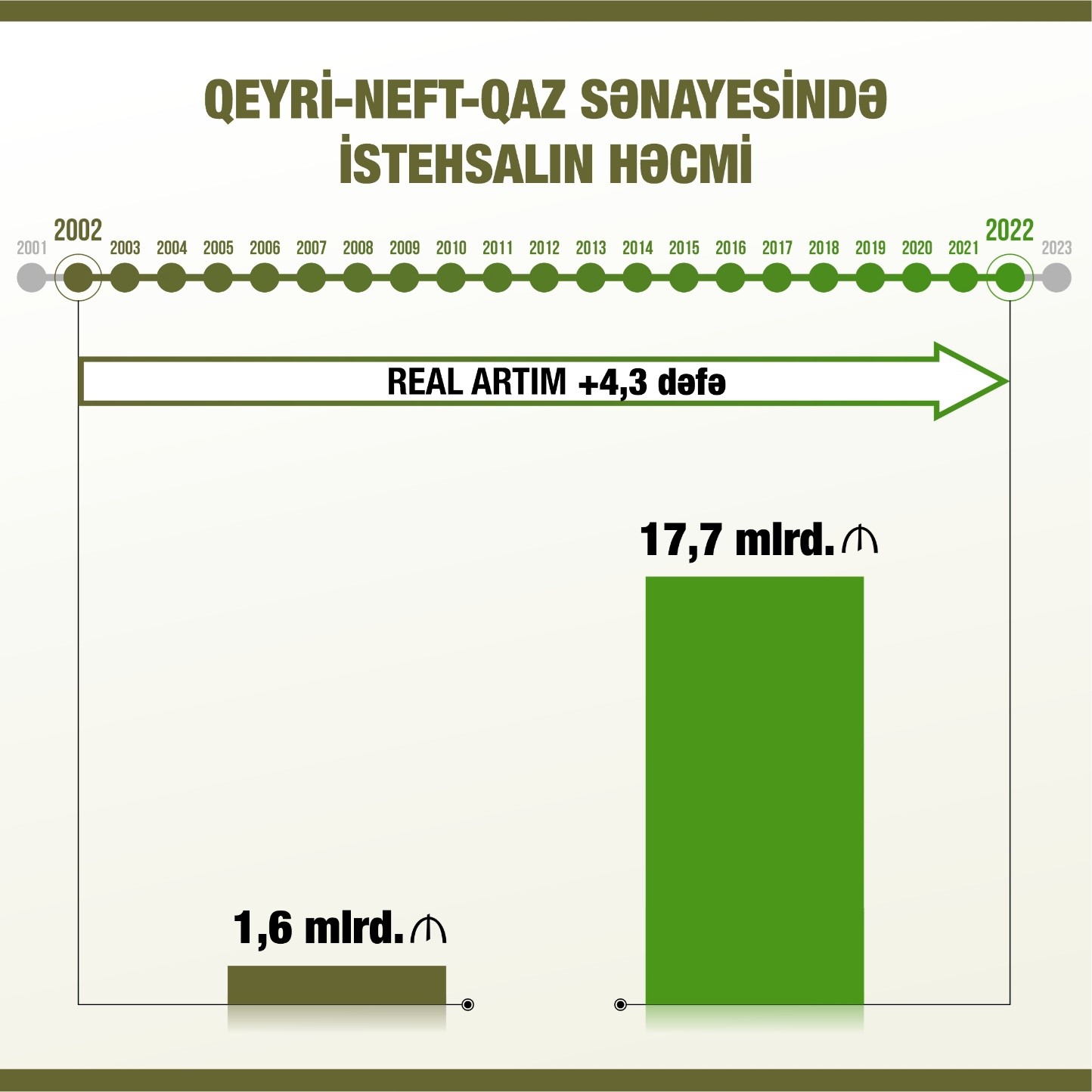
Steps are being taken to renew the structure of the industry to achieve progress in the transition to the "green economy" and the application of "green technologies".
The digital economy creates opportunities for growth
The rapid digitization of the world economy and the significant increase in productivity in this regard create opportunities for qualitative development. In this regard, the state has increased investment in the improvement of digital infrastructure. It is planned to develop and implement a strategy for the development of the digital economy, to create a regulatory mechanism for development and a favorable infrastructure. In addition, it is also necessary to form human capital with knowledge and skills by the requirements of innovative technologies, and special attention is paid to this area. The application of digital technologies in various areas of the economy, including education, healthcare, and other spheres, will ensure the activation of sustainable development drivers and the adaptation of our country to new global trends.
The Analysis and Coordination Center of the Fourth Industrial Revolution, which operates in Azerbaijan, also serves the purpose of strengthening the position of our country in the conditions of new realities and making the most of advanced technological opportunities. The center works on the analysis and coordination of challenges, initiatives, strategies, and projects in the digital economy.
The districts are modernized

The State Programs for the Socio-economic Development of the Regions, which are designed to eliminate the development gap between the capital and the regions, played an important role in the renewal of the infrastructure in the regions and the significant modernization of the image of the regions. The revival of production enterprises and the creation of new industrial facilities in the regions, the improvement of the efficiency of the use of local resources, the development of the agricultural sector with various support mechanisms and innovative methods, the creation of modern infrastructure and new jobs should be mentioned among the main achievements in the implementation of state programs.
In total, the volume of investments made in the regions under 4 state programs is 104 billion manats.
In 2022, the nominal volume of product output by region increased by 13.5 times compared to 2003, and the nominal income of the population increased by 10.5 times. Since 2004, more than 1.8 million new jobs and more than 52 thousand new enterprises have been created in the regions.
From 2004-2022, more than 60 new power plants were commissioned in the country. 76% of electricity is produced in the regions. Over the years, Azerbaijan has turned from a country that imports electricity into a country that exports electricity. The level of gasification in the regions has exceeded 94%, and the indicator for the population receiving uninterrupted drinking water has reached 73% from 9%. During these years, 9 airports were built and reconstructed. The construction of Lachin Airport continues. During that period, more than 3,600 schools, and about 760 medical institutions, most of which belong to the regions, were built or renovated, 43 Olympic Sports Complexes were built, and a large number of bridges, tunnels, and roads were put into use. Most of the production and industrial enterprises belong to the regions. The next state program prepared is also designed to adapt the development of the regions to modern requirements.
According to the instructions of the head of state, the implementation of programs and strategic projects on the socio-economic development of Nakhchivan has been started, which creates fertile conditions for the growth of prosperity and expansion of business activities in the region.
Liberated territories will further increase the country's economic potential
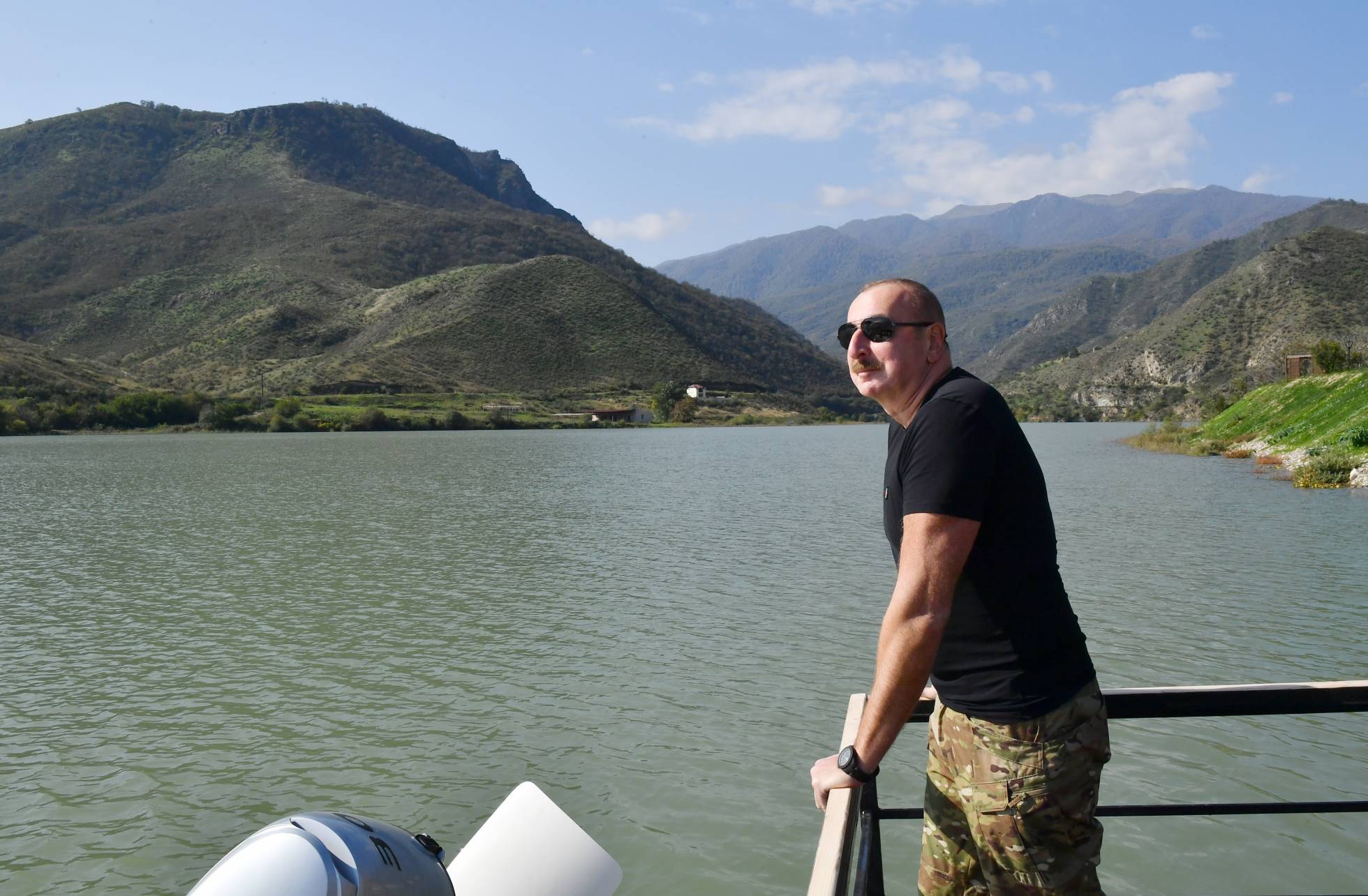
The revival and reintegration of the freed lands promise wide opportunities to increase the economic potential of the country in general. The successful implementation of the "I State Program on the Great Return to the Territories Freed from Occupation of the Republic of Azerbaijan" is of great importance in this regard. About 12 billion manats have been allocated from the state budget for the implementation of projects covering various fields in the region since 2021. At the same time, one of the main goals is to attract private investment in restoration and construction works. Expansion of entrepreneurial activity with investment attraction, application of sustainable practices based on productive food production, promotion of tourism, and other measures are implemented. Special mention should be made of support measures aimed at attracting local and foreign investors to establish new production enterprises in the region and ensure employment. A favorable investment environment has been created for enterprises operating in the region. Imported machinery, technological equipment, and facilities, as well as raw materials and materials for residents engaged in production activities in the liberated territories, were exempted from VAT and customs duties. Business entities operating in the region are also exempted from profit (income), land, property, and simplified tax. To increase access to finance for entrepreneurs, an electronic platform is being developed to provide state guarantees for loans and subsidizing interest rates.
The trends of "greening and decarbonization" in the global economy create opportunities for the development of the non-resource economy. From this point of view, Garabagh and Eastern Zangazur have significant potential, which attracts the interest of foreign investors. Steps have already been taken to establish foreign-invested enterprises in this field.
Reintegration is complex and focuses on social development as well as economic revitalization of areas. Here, comfortable living conditions are provided, social protection is strengthened, services are provided according to advanced standards, and employment is increased. Our compatriots have already started to settle in the new settlements built in the liberated areas. The application of the concepts of "smart city", "smart village" and "green energy zone" ensures comfortable and modern living conditions in the region.
Combat against "shadow economy"
Economic transparency, increasing the attractiveness of the business environment, minimizing the "shadow economy", eliminating unfair competition, and providing an environment for disciplined business are the main directions of tax policy. In the last few years, significant results have been achieved in the context of the legalization of business activities and income. If we go back to 2018, that is, to the beginning of the period that we can call a "new qualitative beginning" in the tax system, we can observe great changes in the tax system, business-state relations, and the context of business activity in recent years.
In 2022, for the first time, 15.5 billion manats of taxes will be received in the state budget. If we compare the amount of tax revenues to the state budget in the year 2002, we can witness how much the financial capabilities of our state have grown along with our economy. Thus, compared to 2002, the increase in tax receipts was almost 23 times, and the receipts from the non-oil and gas sector increased up to 23.4 times. As a result of ensuring the socio-economic development of the regions, incomes from the regions have increased 35.8 times over the last 20 years. The significant increase in tax revenues was an important support for the expansion of the financial capabilities of our country.
Economic growth has led to an annual increase in business activity and the number of entrepreneurs. If in 2002 there were only about 180 thousand business entities in the country, by the end of 2022 the number of registered taxpayers was more than 1.4 million, and the number of active taxpayers was 712 thousand by the end of last year.
The number of employment contracts in the non-oil private sector has increased by more than 340,000 compared to the same period, thanks to the tax incentives on wages applied since the beginning of 2019 to "whiten" the labor market. This indicates the effectiveness of the reform in the medium term. With the increase in the number of employment contracts, the growth of the wage fund leads to the expansion of the collection base of social insurance contributions. The share of the non-oil and gas private sector in labor contracts increased from 38.5% at the beginning of the reform to 49.8%.
In the coming period, the main goals related to the tax field will be realized, first of all, based on the principles of economic promotion, effective control, and digitization. The regulatory role of tax policy in attracting investments and economic diversification will be continued. The systematic fight against the "shadow economy" remains the main priority.
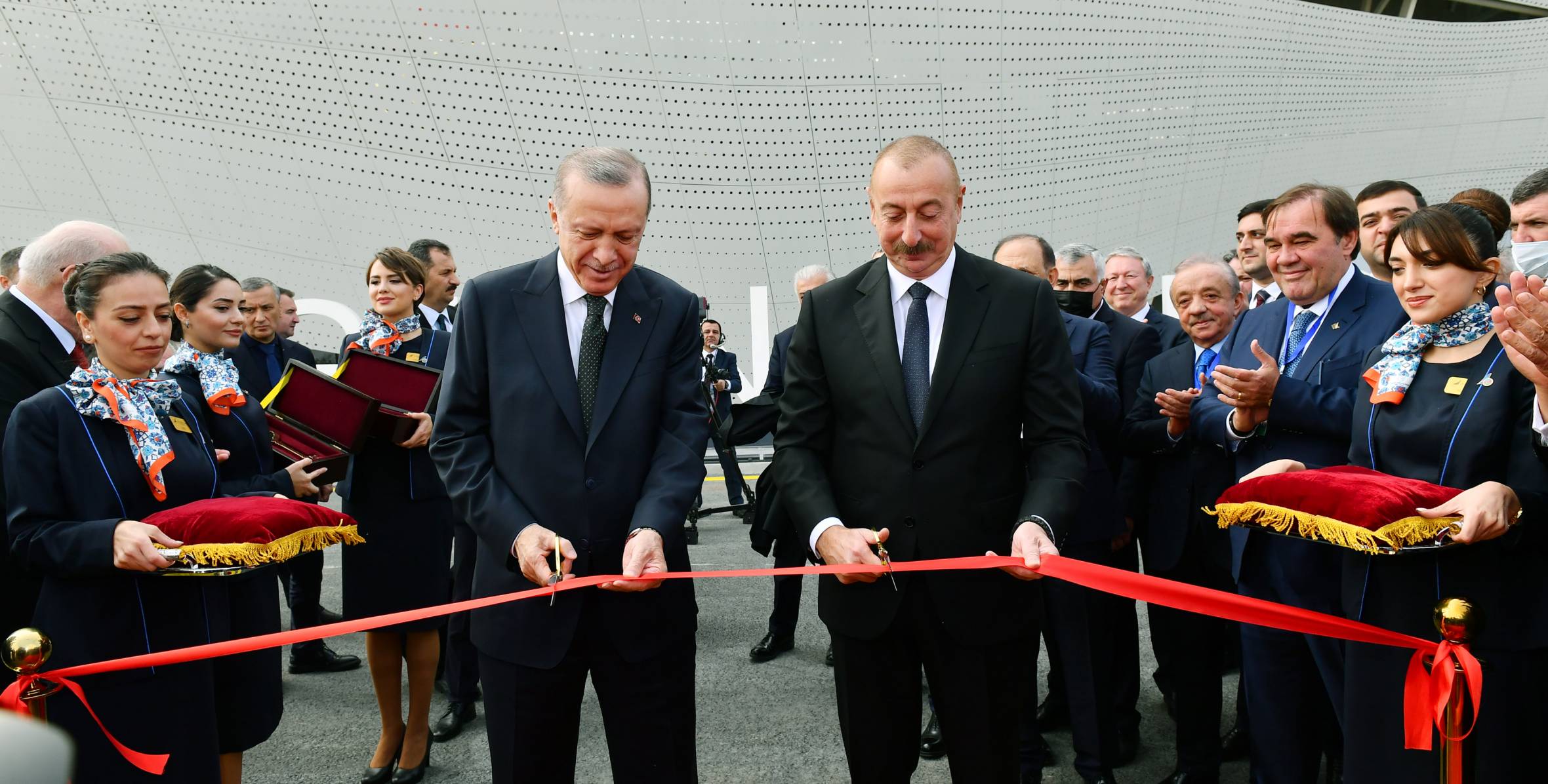
Management of state property and implementation of privatization programs
The process of state property management and implementation of privatization programs is optimized based on modern practices. The main priority is the implementation of privatization guided by the principle of social justice, and the involvement of investors with extensive financial capabilities and experience in the process. In the period after 2003, more than 23 thousand small enterprises and facilities were transferred to private ownership within the framework of the privatization process. About 1,100 out of about 1,600 open joint-stock companies created based on medium and large state enterprises were privatized during that period. About 900 million US dollars have been invested in privatized enterprises through investment competitions alone, and an opportunity has been created for the production of several competitive and export-oriented, as well as import-substituting products. As a result of the privatization of state property, more than 300,000 jobs were opened during this period, and more than 220,000 people became stockholders. Privatization of state property has an important role in increasing the share of the private sector in GDP.
The activity of state enterprises based on the principles of corporate management, increasing economic efficiency, improving financial stability is a contribution to economic development. Entrusting the management of state enterprises to the Azerbaijan Investment Holding created for this purpose, optimal regulation of activities through supervisory boards created in enterprises - distribution of responsibility, ensuring accountability increased the economic dividends of state enterprises, created a solid foundation for transition from loss to profit, and transformation into commercial-based structures that make payments to the budget.
During the 6 months of this year, maintaining the increasing trend, the total turnover of state enterprises was higher than 44 billion manats, and the total operating profit was approximately 5.5 billion manats.
The new management method also facilitates the attraction of private investment in large state-owned enterprises. Institutional reforms will be continued in large state-owned companies covering important sectors and the state's share in them will be gradually reduced based on the Decree of the Head of State, which envisages measures to attract private investments to state-owned enterprises. This innovation, which will create conditions for the revitalization of capital markets, will expand the participation of citizens in the management of state enterprises and the possibilities of private investments in those enterprises. The experience to be gained is expected to be applied to economic entities operating in other fields.
Measures implemented in the field of expanding the public-private sector partnership in all areas of the economy and increasing the role of the private sector in economic development, including the adoption of a new law based on best practice, are of particular importance. With the implementation of the law, a new page has been opened in both the dynamics and quality of investment activity in the country's economy. Today, innovative and priority projects have been implemented within the framework of public-private partnerships.
Another step towards increasing transparency is the signing of the Law "On State Procurement" by the head of state on July 14, 2023. The new law aims to increase the level of transparency and discipline in the field of public procurement, to take into account flexibility requirements, to ensure the economical use of state budget funds and the transition to electronic procurement, and to expand control capabilities.
Healthy competition is one of the main factors that ensure economic development in the country. Not only entrepreneurs, the state, but also consumers and ordinary citizens benefit from fair competition, price reduction, and product range expansion. In this regard, the adoption of the Competition Code will enable the development of a favorable business environment that supports the development of the private sector in the country, will make a significant contribution to limiting monopoly, increasing the competitiveness of local economic entities in domestic and foreign markets, increasing the efficiency of the state's economic regulation, and accelerating economic growth and development.
The country is guided by the principles of concentration of management on the human factor and establishment of service to citizens based on technological innovations and modern trends. More than 260 services are provided by the Ministry of Economy through the reforms carried out in the direction of improving the quality of services provided to citizens, including entrepreneurs. 194 of those services have already been electronicized.
The implemented reforms have brought independent Azerbaijan to the threshold of the next big turning point. The successful implementation of sustainable development measures at the new stage, including the development of the economy in innovative ways, the diversification of the non-oil sector, the development of the digital ecosystem, the restoration of Garabagh and Eastern Zangazur, as well as the continuation of result-oriented reforms in the economic and social fields, in turn, will lead to higher social will ensure economic achievements and growth.
During the 20-year leadership of Ilham Aliyev, covering the years 2003-2023, the policy of applying modern technologies in customs bodies, strengthening the potential of customs officers, and rebuilding the infrastructure at border crossing points at the level of world standards was successfully continued.
Customs legislation is improved, transparency is increased
The State Customs Committee told APA-Economics that the independent Republic of Azerbaijan, located on the historical Silk Road, plays an important role in the efficient and timely transportation of goods through the "North-South" and "East-West" corridors as one of the important links of the international trade chain. One of the important issues that countries and international organizations are thinking about in the background of the current globalization process in the world is ensuring and facilitating the continuity, and intensity of the international trade chain.
The expansion of the geography of economic and trade relations of the republic from year to year, as well as the constant increase in the volume of import-export transactions, the process of Azerbaijan's integration into the international economic system, the improvement of the customs legislation as a whole, taking into account the advanced experience in the field of customs work and the provisions of the international conventions to which the country has joined, including the important ones in this field He made it necessary to adopt the Customs Code. Improvement and development of the customs legislation of Azerbaijan, as well as the study of international standards in the field of customs work and the continuation of their application, the "Azerbaijan-European Union Action Plan" adopted in 2006 within the framework of the "New Neighborhood Policy" of the European Union. 2011 to fulfill the provisions of "improving the activity of the customs service", as well as to reflect the provisions of the International Convention "On the Simplification and Harmonization of Customs Procedures" (Kyoto Convention) and the "Framework Standards for Facilitation and Security of International Trade" of the World Customs Organization in the national customs legislation, 2011 The Law of the Republic of Azerbaijan No. 164-IVQ dated June 24 - the new Customs Code was adopted.
In 2003, the Regional Training Center of the World Customs Organization and the Canine Center were opened in Baku. In 2006, the Information and Inquiry Center and a modern Server Service were put into use at the State Customs Committee, and in 2011, the European Regional Office for Capacity Building of the World Customs Organization was opened in Baku. In 2014, the "Hadaf" Center started operating at the General Customs Department of Air Transport.
The independent state of Azerbaijan is constantly strengthening its position in the field of international relations. More than 130 documents were signed, providing for the expansion of cooperation in the field of customs work.
The State Customs Committee of the Republic of Azerbaijan, which has a special share in the budget revenues, successfully fulfills the budget obligations determined to fulfill the tasks and tasks set in the fiscal field at a high level.
Thus, during the 9 months of the current year, the transfer of 318.82 million manats to the state budget was ensured by the customs authorities, which was 4 billion 706.61 million manats against the forecast of 4 billion 392.78 million manats, and the 9-month budget commitment 107.14 percent have been fulfilled.
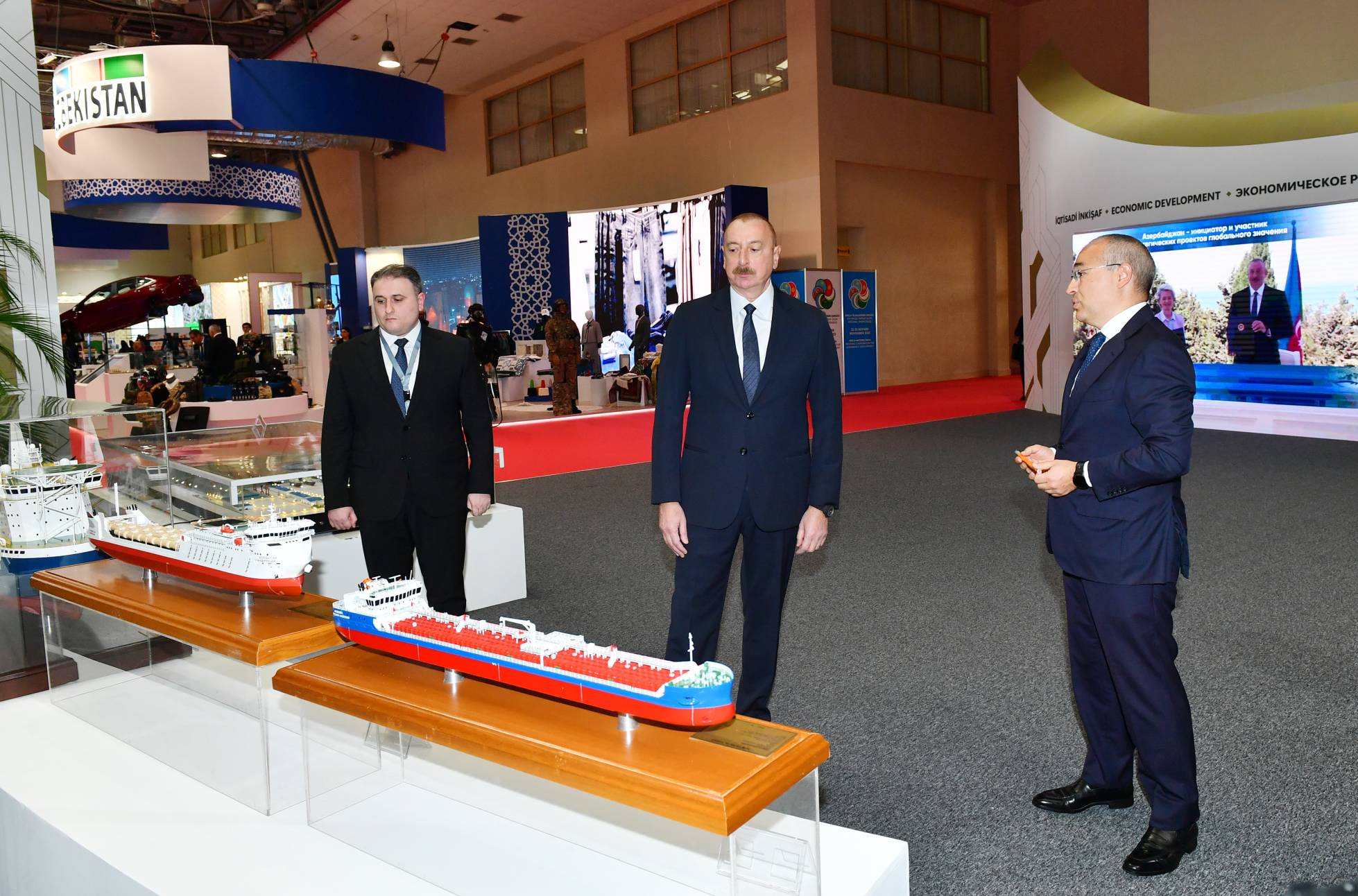
Advances in communications, transportation, and high technologies in numbers
In the last 20 years, great progress has been made in the field of communication, transport, and high technologies in Azerbaijan.
The Ministry of Digital Development and Transport told APA-Economics that during this period more than 20,000 kilometers of highways and 1,500 kilometers of railways were newly built or overhauled. The country has become a regionally important transport-logistics and trade hub and benefits from the main trade routes. Service infrastructures have been modernized in all areas of the transport sector, projects related to the reconstruction of road infrastructure have been implemented, numerous overpasses, bridges, tunnels, underground and surface pedestrian crossings have been built. Work was carried out in the direction of updating the transport fleet in all areas of transport. Huge infrastructure projects have been implemented in the direction of realization of large transport corridors such as TRASEKA, North-South. The Baku-Tbilisi-Kars railway connecting European and Asian railway networks was launched in 2017. Due to the Baku-Tbilisi-Kars railway route, which is the main alternative of the East-West corridor, the volume of cargo transportation from the territory of Azerbaijan has increased. Baku International Sea Trade Port, which is considered the modern and safe port of the region, was commissioned in 2018.
Port infrastructure, port development logistics have been improved, transit cargo advantage in ports has been achieved.
Baku Shipyard, which meets modern requirements and was commissioned in 2013, operates in the field of construction and repair of ships of various purposes.
Due to the creation of the Free Economic Zone in the Baku International Sea Trade Port and the logistics hub in the Heydar Aliyev International Airport, the added value of transit cargo has been increased.
8 modern airports have been built or reconstructed, and an airport infrastructure of international importance has been created. The Transport Intelligent Management Center was established in Baku city, which oversees the improvement of the transport system, the improvement of the quality of transport services, the regulation of public transport traffic and the optimization of traffic routes (it was opened on December 29, 2011). In the field of transport, various international agreements have been signed, and the country's legislation has been adapted to advanced practices.
Fuzuli (official opening on 26.10.2021) and Zangilan (20.10.2022) airports have been built as part of the works carried out in the liberated territories, and construction works are ongoing at Lachin (Gorchu) Airport. Construction works are underway on the Horadiz-Aghband (110.4 km) and Barda-Aghdam (47.1 km) railways and the design works of the Fuzuli-Shusha (79 km) railway have been completed. The construction of highways with a total length of 177.9 km has been completed, and construction works are continuing on 666.1 km of roads. Design works for bus station complexes to be built in Agdam and Fuzuli cities are underway.
As for the achievements in the field of digital development, in the last 20 years, more than 10 times growth has been achieved in the field of information and communication, and the application of modern technologies in all fields has been accelerated. The number of employees working in the information and communication sector has exceeded 32 thousand people. The average monthly salary in the information and communication sector has exceeded 1,500 manats. The telecommunication infrastructure renewal project was carried out in the country, and the application of modern technologies was achieved in all directions. Significant work has been done to ensure the population's access to electronic government services. The digital skills of the population have increased. An electronic government payment system - "E-gov Pay" was created and launched for the expansion of non-cash payments. More than 350 services of more than 40 state institutions have been presented to citizens on the "Electronic Government" portal. Against the background of the growing demand for electronic services, the use of e-signature has been improved, and "electronic signature" tokens have been created. To accelerate the digital transformation and promote the use of online services in Azerbaijan, a cloud-based digital signature of the new generation has been launched under the name SIMA. The Regional Data Center, which functions as a centralized IT resource, has been launched. "100 state institutions are using the first existing TIER III level Data Center in the South Caucasus region for the implementation of the "Government Cloud Transition Plan" of state information systems and resources. "Electronic government" systems with their entire infrastructure will be transferred to the Data Center in 2018, state-important systems will be protected in cyberspace, and services will be digitized. In 2018, e-ID was applied to the new generation of ID cards issued to the citizens of the Republic of Azerbaijan. Taking into account the concepts of "Smart City" (Smart City) and "Smart Village" (Smart Village), sustainable settlement of the population is ensured in the areas freed from occupation. The volume of internet use and direct electronic commerce in the country has increased many times. The number of Internet providers operating in the country has exceeded 150. 88% of the population is an internet user, as well as a broadband internet user. The coverage percentage of the country's population with mobile networks is 100%, 3G network coverage is 99.8%, and 4G network coverage is 94%. The number of active mobile broadband internet subscribers per 100 people has exceeded 80%. The "Online Azerbaijan" project was launched to expand the scope of the high-speed internet network. More than 50% of households have access to high-speed internet services. Mobile infrastructure, fiber-optic cable networks, and telecommunication hubs meeting modern standards have been created in the liberated territories, and television and radio programs are broadcast over the air. Work in this direction is continued. To attract foreign investors to the ICT sector and establish relations between potential foreign investors and local IT companies, an "IT Investors Club" and a local venture fund were established.
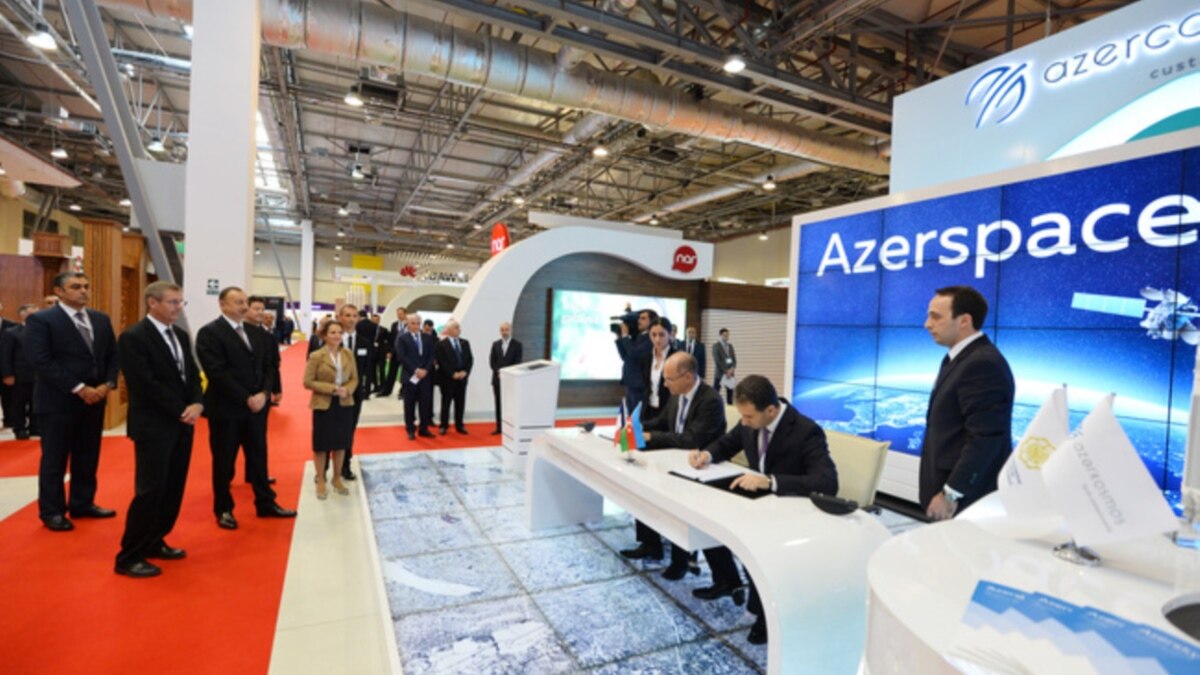
In 2013, "Azerspace-1" and in 2018, "Azerspace-2" telecommunication satellites were launched into orbit.
Defense, security, emergency, natural resource exploration, maritime, environmental protection, urban planning, mapping, agriculture, tourism, etc. "Azersky" Earth observation satellite, which is widely used in such fields, was put into orbit in 2014.
For the first time in the South Caucasus, the digital test broadcasting of television was started in Baku in 2004, and in 2016, the transition to digital broadcasting was made in Azerbaijan.
Currently, 99.8% of populated areas in the country are covered by social digital television broadcasting, and these programs are broadcast in HD format in addition to SD in the capital. Since 2019, digital radio broadcasting (12 radio programs) has been started in the capital. From 2022, local TV programs will be broadcast in HD format via satellite. On May 26-29, 2022, the "TEKNOFEST Azerbaijan" Aerospace and Technology Festival was held, which was visited by about 300 thousand people. On October 2-6, 2023, the International Astronautical Congress was held again in Baku after 50 years under the slogan "Global challenges and opportunities: let's give space a chance". A record number of 3,600 scientific articles from 95 countries were presented to the Congress. Baku Congress achieved a record number of sponsorship packages, 22 companies received sponsorship packages for the event. This was the highest figure compared to the last five congresses held in Australia, Germany, the USA, the United Arab Emirates, and France. A record number of 5,404 representatives from 132 countries participated in the congress.
"National Strategy for Information and Communication Technologies for the Development of the Republic of Azerbaijan (2003-2012)", and "National Strategy for the Development of the Information Society in the Republic of Azerbaijan for 2014-2020" were successfully implemented.
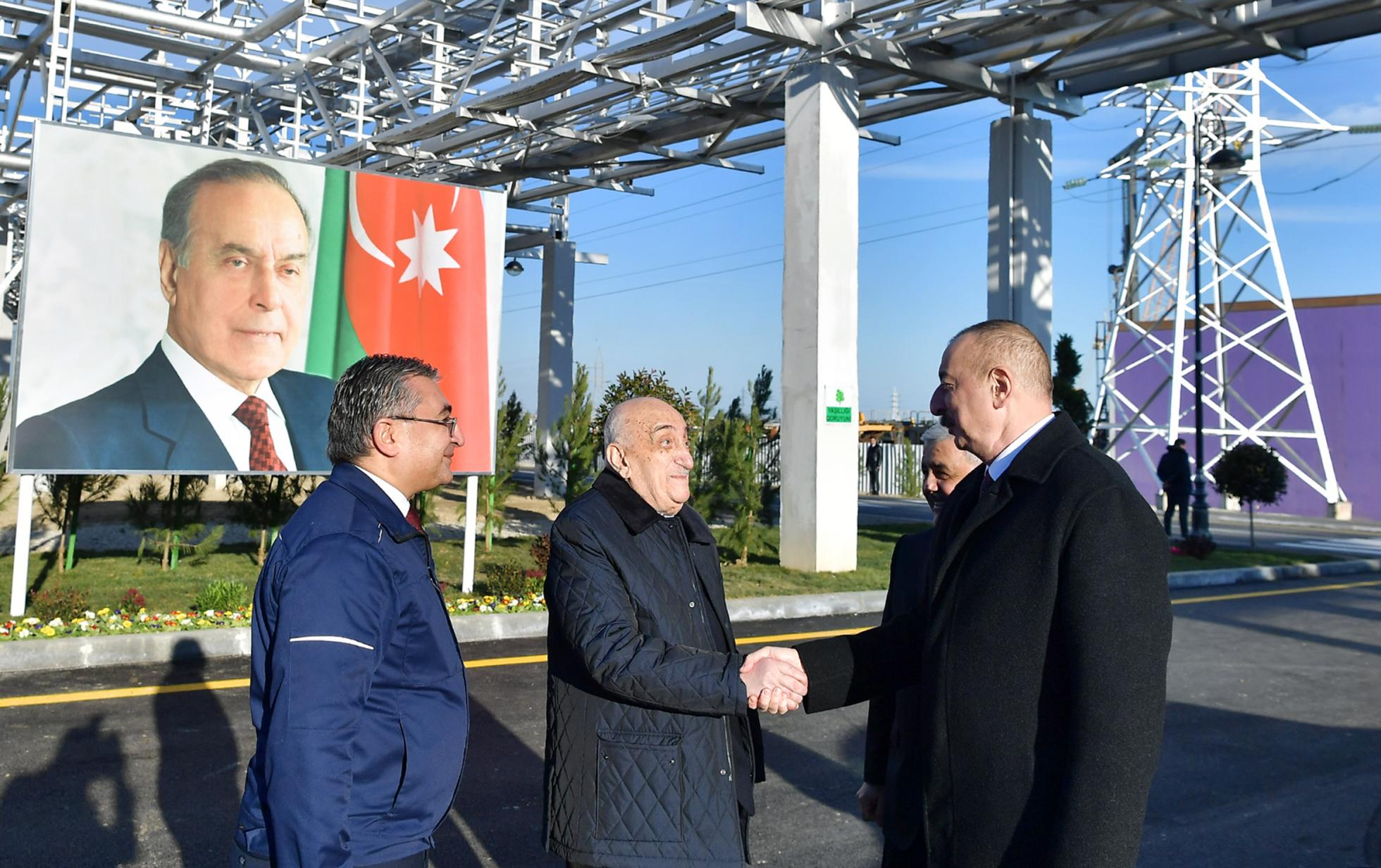
Azerbaijan has become a gas exporting country to Europe
In 2003, the Stage 1 project for the development of the "Shah Deniz" field was approved.
In 2004, Stage 3 of the development of the "Azeri-Chirag-Deerinsulu Guneshli" deposits was approved. The construction of the South Caucasus Pipeline has started.
In 2005, an official event was held at the Sangachal terminal on the injection of crude oil into the Baku-Tbilisi-Ceyhan pipeline, oil production from the "Central Azeri" field under the "Azeri Phase 1" project was started.
In 2006, oil production started from the "West Azeri" field under the "Azeri Phase 2" project. Under the "Azeri Phase 2" project, oil production has started in the "Shargi Azeri" field. The first gas was pumped from the South Caucasus Pipeline. On May 28, Azerbaijani oil reached the port of Ceyhan through the Baku-Tbilisi-Ceyhan pipeline. On July 13, the grand opening ceremony of the Baku-Tbilisi-Ceyhan Main Export Pipeline named after Heydar Aliyev, which is the largest energy project of the 21st century, was held in Ceyhan, Türkiye.
In 2007, the first gas was transported from the Shah Deniz field to Türkiye.
In 2008, the first oil was extracted from the deep-water part of the "Guneshli" field. SOCAR entered the Turkish market by purchasing a 51% share of the "Petkim" petrochemical complex.
In 2009, the capacity of the Baku-Tbilisi-Ceyhan pipeline was increased to 1.2 million barrels per day.
In 2010, the "Chirag" oil project was approved. A document was signed on the extension of the Production Sharing Agreement on the "Shah Deniz" field from 2031 to 2036.
The 1 billion barrel of oil was transported through the Baku-Tbilisi-Ceyhan pipeline.
In 2010, the "Umid" gas-condensate field was discovered. This is the first field discovered by SOCAR after the independence of the Republic of Azerbaijan.
In 2011, the European Commission and the Government of Azerbaijan signed a Joint Declaration on the Southern Gas Corridor. The foundation of the "STAR" oil refinery was laid in the Aliaga region of Izmir, Türkiye. The foundation of the SOCAR urea plant was laid.
In 2012, the signing ceremony of documents on the "Trans-Anatolian Gas Pipeline" (TANAP) project was held in Istanbul with the participation of the President of the Republic of Azerbaijan Ilham Aliyev and Prime Minister of Türkiye Recep Tayyip Erdogan.
In 2013, the first and only Methanol plant in the Caucasus was put into operation. The "Shahdeniz" consortium has received a final investment decision within the "Shahdeniz-2" project. The Trans-Adriatic Pipeline (TAP) route has been selected as the export route for the gas produced from the "Shah Deniz" field to Europe.
In 2014, oil production started from the "Western Chirag" platform.
In 2015, the foundation of the TANAP pipeline was laid in Kars, Türkiye.
On September 20, 2016, bonds were put on sale for the first time by SOCAR.
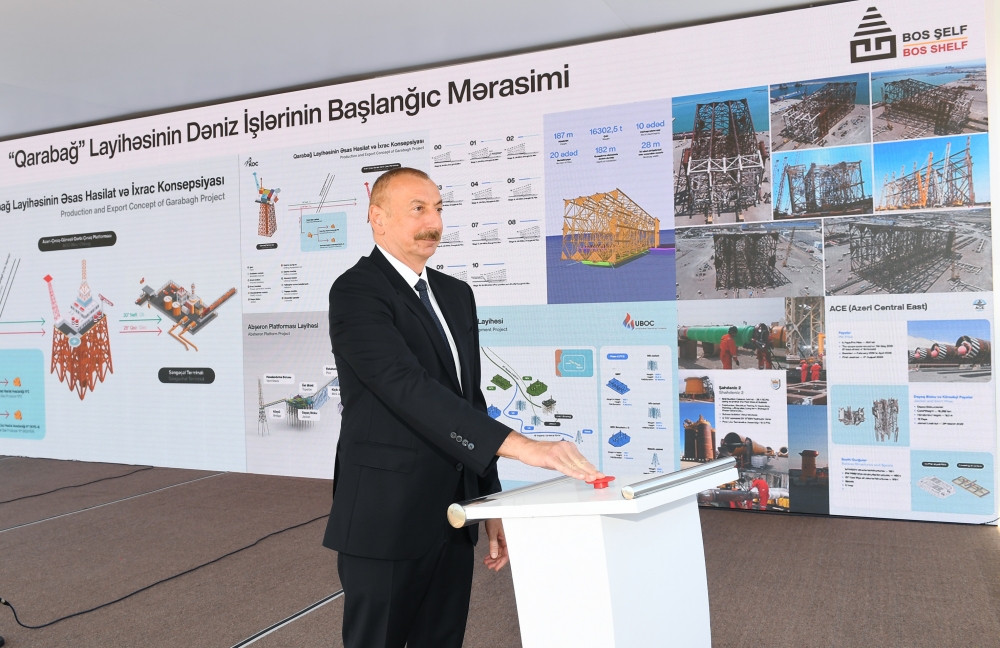
In 2017, SOCAR's Swiss subsidiary "SOCAR Energy Holdings" entered the Austrian retail fuel market and bought gas stations belonging to the "A1" company and the "Pronto Oil" company operating in the field of oil trade. On September 14, the document on the joint development of the "Azeri", and "Chirag" fields and the deep part of the "Guneshli" field and the distribution of production was amended and a revised Agreement was signed. According to the new Agreement extended until the end of 2049, BP continues its activity as the operator of the project, SOCAR's share has increased from 11.65% to 25%, and 75% of the profit oil goes to Azerbaijan. The 6th generation Yarimdalma floating drilling rig named after Heydar Aliyev has been put into operation. On November 8, the 2 billionth ton of oil was produced in Azerbaijan. "Petkim" Wind Power Plant has been put into operation.
In 2018, the official opening ceremony of the Southern Gas Corridor was held at the Sangachal terminal in Baku. The first part of the TANAP pipeline from the Türkiye-Georgia border to Eskisehir has been commissioned. Within the Shah Deniz-2 project, the first commercial gas was transported to Türkiye through the TANAP pipeline. The Polypropylene (PP) plant was put into operation within the framework of the "SOCAR Polymer" project. The opening ceremony of SOCAR's biggest investment project in Türkiye - the "STAR" oil refinery was held. The new stationary offshore core No. 12, built by SOCAR's "Neftgaztikinti" Trust, has been put into operation in the "Bulla-Deniz" field.
In 2019, the "SOCAR Urea" plant, which contributes to the development of agriculture and the non-oil sector in Azerbaijan, was put into operation. The High-Density Polyethylene (YSPE) plant has been put into operation within the framework of the "SOCAR Polymer" project. Since March, after the management of Petlim Container Port, whose shares are 70% owned by "Petkim", was transferred from APMT to "SOCAR Türkiye", the port began to operate as "SOCAR Terminal". On November 30, the opening ceremony of TANAP's European connection was held.
On March 19, 2020, SOCAR and "Equinor" companies confirmed the discovery of the "Garabagh" oil field. The "Garabagh" field went down in history as the first oil field discovered during our independence. On March 20, the technical operatorship of the South Caucasus Pipeline was transferred from BP to SOCAR. On April 24, with the participation of the President of the Republic of Azerbaijan Ilham Aliyev, the opening of the main gas pipeline from Aghdara village of Khizi district to Sumgait city was held in the Absheron region. On August 10, the support block "Garabagh" was sent to the sea. On September 19, the groundbreaking ceremony of the offshore works of the "Absheron" field was held. With the commissioning of the TAP pipeline on December 31, the first stage of the "Southern Gas Corridor" project was practically completed, and Azerbaijani gas was transported directly to the European market for the first time in history.
In 2021, the first gas-condensate reserves were discovered in the "Shafaq-Asiman" field. On January 23, by the Decree of the President of the Republic of Azerbaijan, Ilham Aliyev, the Supervisory Board of SOCAR was established to carry out general management and control over the activities of the State Oil Company of the Republic of Azerbaijan. On September 5, a new "SOCAR" brand modular gas filling station was put into use in Agdam city. On September 20, SOCAR issued bonds for the domestic market for the second time. On December 20, a gas station of SOCAR was opened in the section of the Gorus-Gafan road that passes through Eyvazli village of the Gubadli district.
On September 21, 2022, a new modular gas filling station of SOCAR was put into use in the Hadrut settlement of the Khojavend region. This station is considered convenient for motor vehicle owners using the Fuzuli-Hadrut-Shusha highway. On December 13, the supporting block of the "Azeri-Central-Eastern" platform was launched into the sea at the Heydar Aliyev Baku Deep Wells Plant.
On February 20, 2023, the fuel filling station of SOCAR was put into operation in the city of Lachin. The modular station is intended for vehicles using the Lachin-Shusha road.
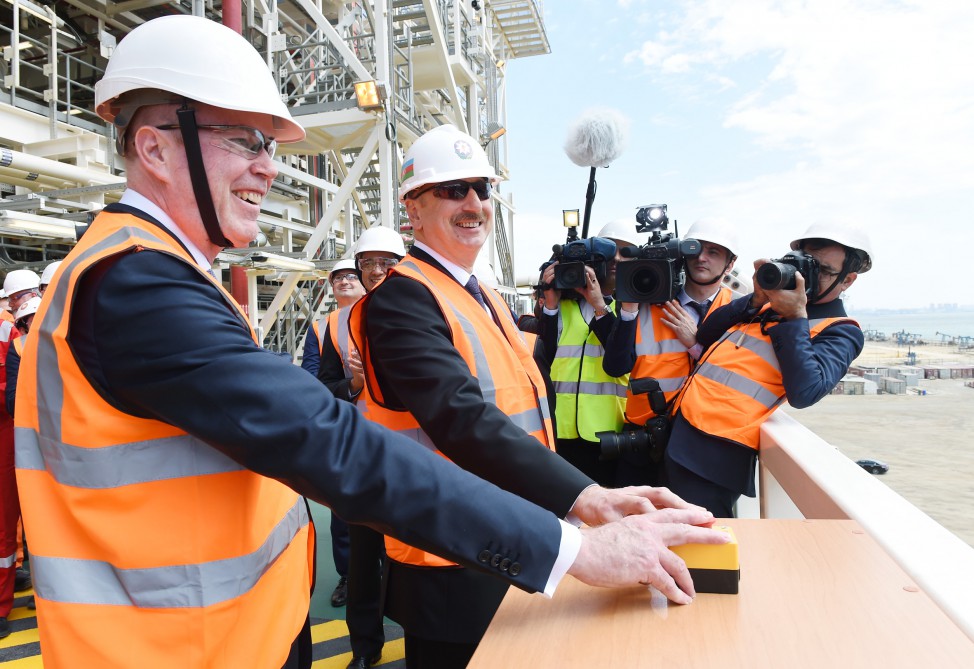
It was during this period that the legendary "Shahdeniz" gas-condensate field was put into operation, and its potential made it possible to turn Azerbaijan into a country that exports gas not only to neighboring countries but also to Europe.
All this was possible as a result of the creation of the Southern Gas Corridor and its components. To achieve this, works were carried out in the direction of expanding the South Caucasus gas pipeline, the Trans-Anatolian and Trans-Adriatic gas pipelines were built and put into operation. Currently, active work is being done to expand the scope and volumes of Azerbaijani gas exports to European countries.
The figures show the importance of the "Shahdeniz" field. Thus, 206.7 bln. cubic meter of gas was produced. During this period, 146.4 billion of gas produced from "Shah Deniz" cubic meters were transported for export.
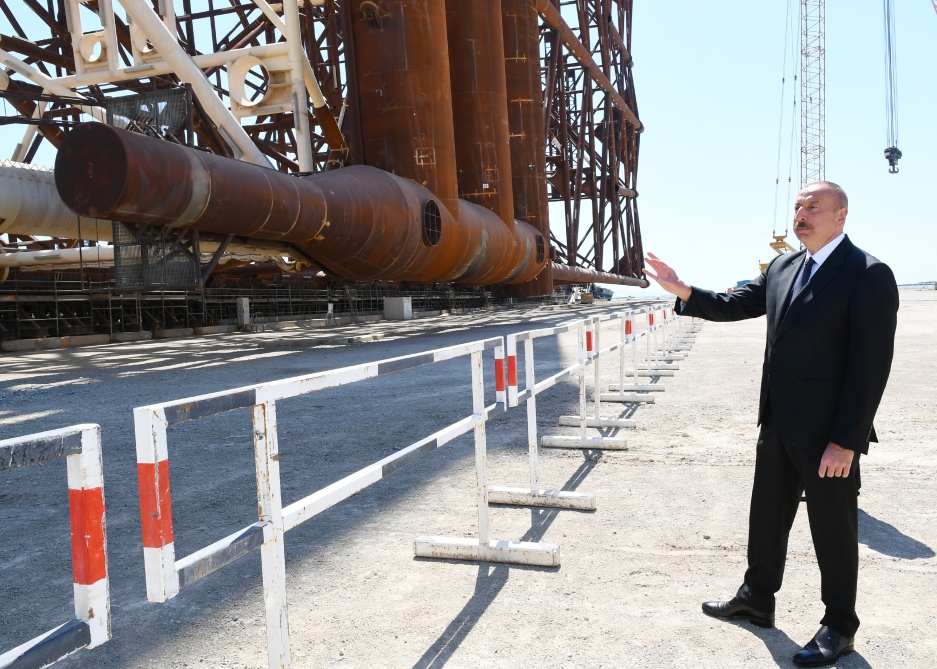
Banking and financial sector: significant changes
According to our analysis based on the indicators of the Central Bank of Azerbaijan, significant changes have occurred in the banking and financial sector in the last 20 years. Thus, during the period 2003-2023, the total volume of bank assets in Azerbaijan increased 46 times to 46.1 billion manats, and the volume of the bank's loan portfolio increased 47 times to 22.5 billion manats. During these years, the deposit base of the banking sector increased 54 times to 33 billion manats, the savings of the population increased 49 times to 12.2 billion manats, and the deposits of companies increased 58 times to 20.8 billion manats.
During the past period, the capitalization of the banking sector continued. A 31-fold increase in total capital was observed. So, 188 mln. The volume of balance capital, which started from AZN, is 5.9 billion today. has reached manat.
The foreign currency reserves of the Central Bank increased 14 times or 9.8 billion dollars and amounted to 10.6 billion dollars.
During the activity of the State Oil Fund of the Republic of Azerbaijan during these years, the volume of revenues amounted to 192.7 billion. It was US dollars. The expenses of the fund are 137.2 billion. was at the level of US dollars. The amount of transfer to the state budget is 120.3 billion. USD or 87.7% of the total costs.
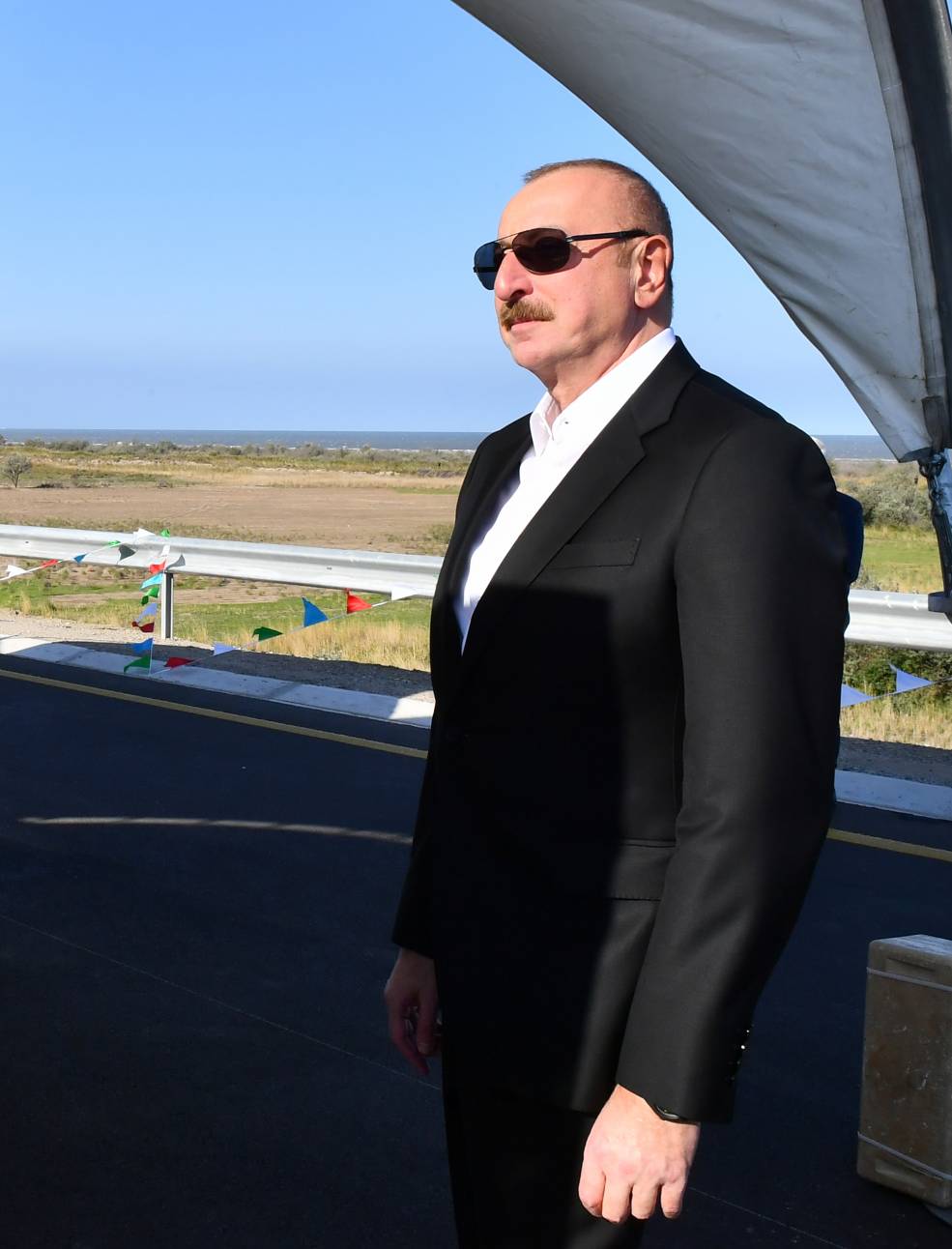
It should be noted that in 2019, President Ilham Aliyev issued a decree on the resolution of problematic loans of individuals in foreign currency due to the problem loans that arose as a result of the devaluation decisions of February 21 and December 21, 2015. As a result, the credit problem of 850-900 thousand people in our country was solved with the concession of the state.
In conclusion, it should be noted that as a result of the measures implemented under the leadership of President Ilham Aliyev, Azerbaijan has had a leading position in the world in terms of economic development parameters for 20 years. As a result of the far-sighted policy of the head of state, it can be confidently emphasized that this development will increase even more in the coming years.


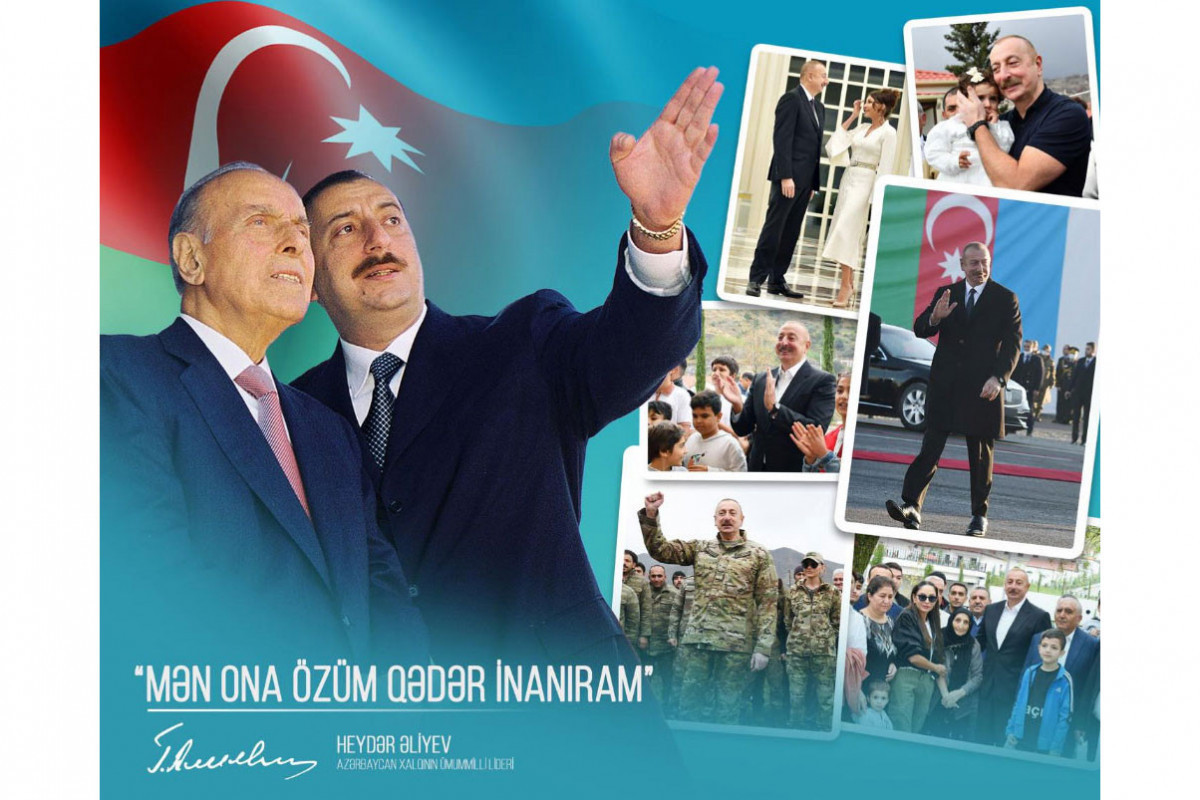
 ANALYSIS'>
ANALYSIS'>
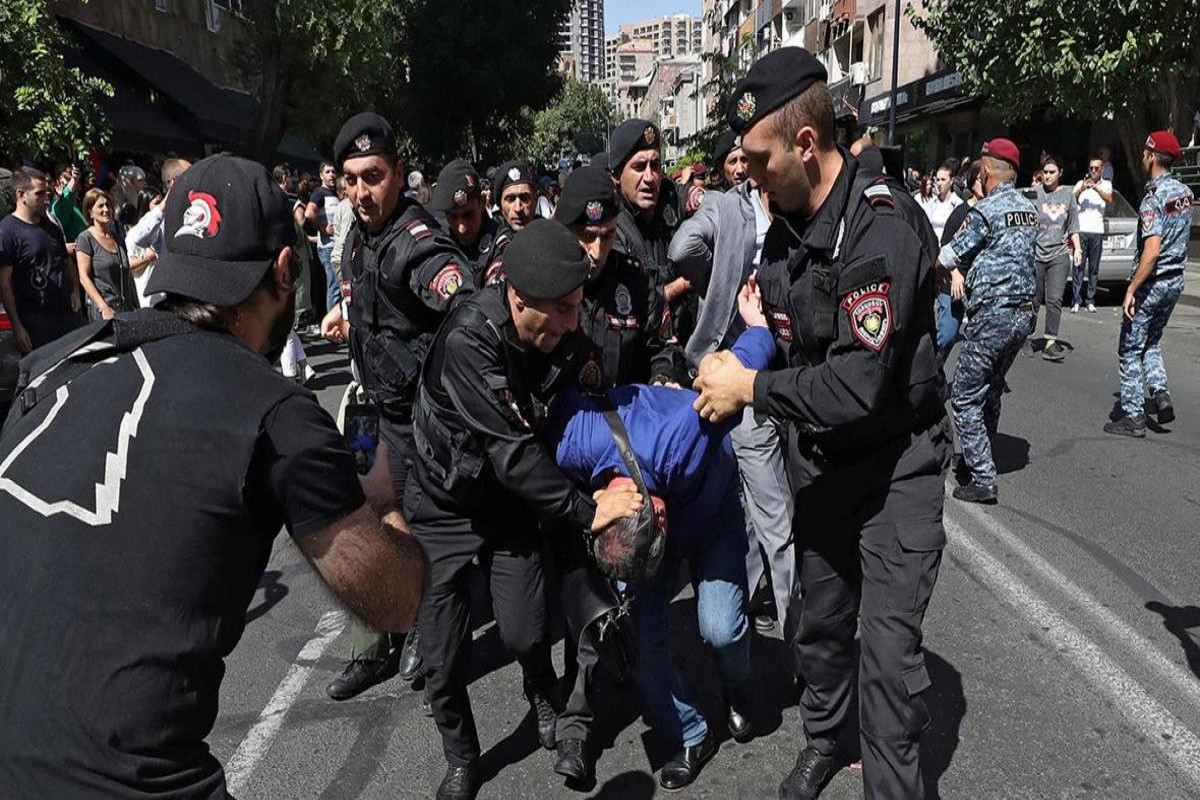
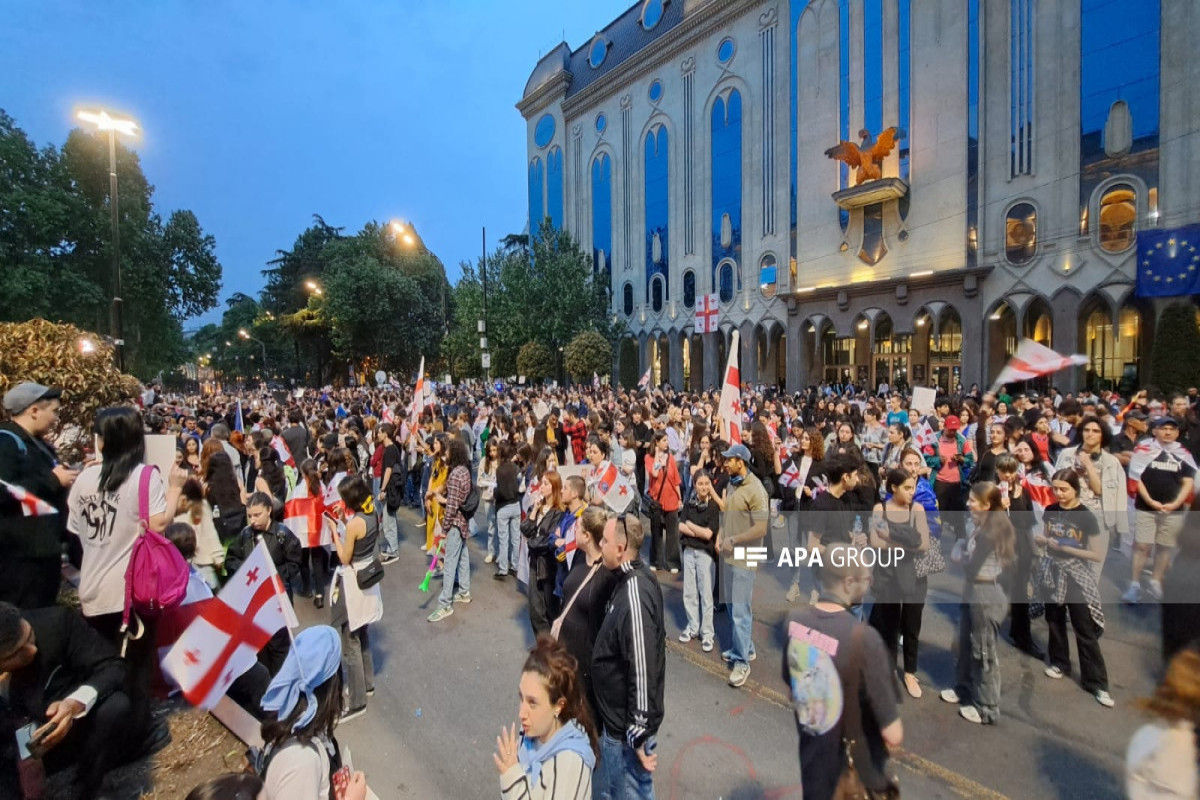 ANALYTICS'>
ANALYTICS'>
